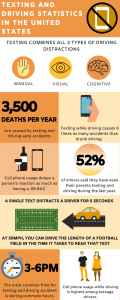Above the Law provides an interesting link from a South Carolina family law firm that I can bet you is experiencing a real spike in web traffic. The firm lays down the law to its clients on its website, warning them to wait patiently for return calls (they are busy), not to call on weekends, stop by unannounced, or even to expect that they won’t make mistakes.
I have never handled a domestic case in my life. I couldn’t. I could never bear the bitter pettiness that comes with domestic battles. I deal well with people who are suffering from an injury – including emotional injuries that stem from a physical injury or a death. Pain, physical limitation, loss of someone you  love? I can get my mind around that. Your bitterness because your husband cheated on you? Day in and day out, that has to be a tough road to hoe. But there was a sign-up sheet out for family law lawyers and these folks signed up. The job description would include dealing with a lot of stressed-out clients who will be upset when you make a mistake and may want to talk to you at odd times.
love? I can get my mind around that. Your bitterness because your husband cheated on you? Day in and day out, that has to be a tough road to hoe. But there was a sign-up sheet out for family law lawyers and these folks signed up. The job description would include dealing with a lot of stressed-out clients who will be upset when you make a mistake and may want to talk to you at odd times.
I do not intend this blog post to criticize this firm. Any law firm can set any policies for client expectations that they want. I am more interested in the answer to this question: would you ever hire this firm? I have no problem with their policy of not working on the weekends or with some other boundaries they set (except for their mistakes policy, which I will get to in a minute). But the brazen tone and tenor with which they announce these policies strikes me as odd.
You are going through a tough divorce. You think you need someone is really in your corner. What are the chances this firm will go the extra mile for you compared to Firm B? Maybe they would. They might be spectacular lawyers who fight to the end for their clients. But given the limited amount of evidence you have when looking for a lawyer on the Internet, what are the chances this firm, given this introduction, will be your choice?
There is a nice state-of-the-art car wash near my house that I would love to use. But when you pull up, the first thing you see is a huge laundry list – in all caps – of my obligations to them, followed by a clear statement that they have no responsibilities towards me, even if one if its employees comes up and socks me in the face. I’m fine with the terms, actually. And it might be a great car wash and the car wash owners may be very reasonable people who just feel compelled to lay out the rules unambiguously. But I just can’t stand that they are shouting at me before my car touches an ounce of soap. Sadly, my car stays dirty. Continue reading











